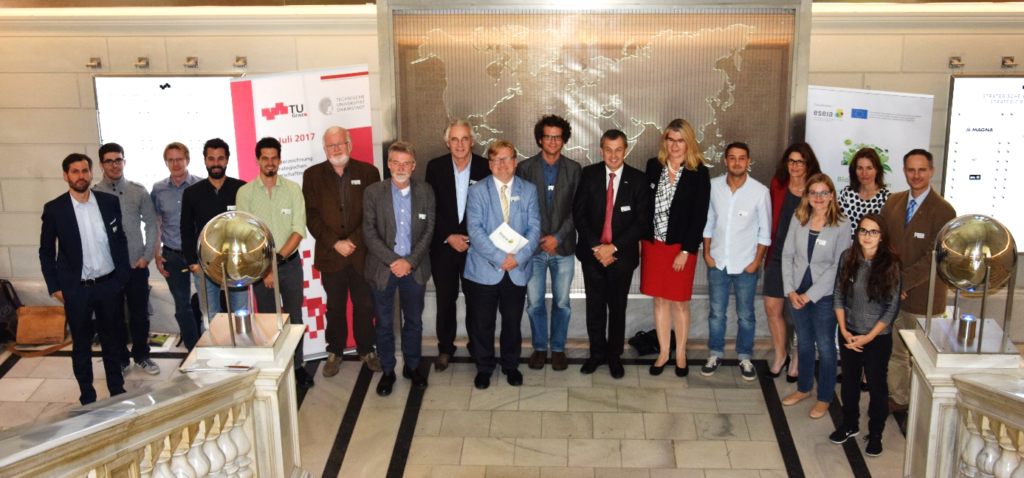The win-win situation of hosting Student Camps at companies’ headquarters can promote innovation in the industry and increase the employability of skilled graduates in the field of bioresources.
When young workers fresh from college approach the job market, they can count on a sound theoretical knowledge and a predisposition to deal with new technologies, such as 3D printers. However, they are too often lacking practical experience in the field. Periods of training at the companies´ headquarters could offer a solution to the lack of vital know-how of graduate students. This is the conclusion of the roundtable dialogue between industry and university, which took place during the BioEnergyTrain (BET) Buying-In event at the Graz University of Technology (TU Graz).

Speakers of the BioEnergyTrain Buying-In Event, 14 September, Graz University of Technology, Austria.
Students who are approaching the career of biorefinery engineers and bioresource value chain managers, could be mentored by experts in student camps at the companies that are involved in the BET project and that are active in the field of bioresources. This learning format would benefit not only students, but the company itself as in the case of the Student Camp held at BRP-Powertrain in Austria in 2016. Students contributed to “develop new solutions in the Life-cycle assessment for reducing the footprint of BRP-Rotax products” stressed Josef Fürlinger, General Manager of Regionales Innovations Centrum (RIC), subsidiary of BRP. Therefore, the Student Camp represents an opportunity for the industry be part of a win-win situation. While companies can innovate themselves by opening their gates to skilled graduates, the latters will increase their chances of employability. For this reason Maria Ortner, Green Tech Cluster Styria, raised the possibility to organise a workshop for companies interested in participating in the educational formats promoted by the BET project within the two master programmes on Biorefinery Engineering (BRE) and Bioresource Value Chain Management (BVM).
A parallel round table session on “Administration and Policy Actors” tackled instead the challenges of linking the offer of new cooperative educational formats in bioresources with existing needs in the region. Actors such as municipalities, the chamber of agriculture and regional energy agencies, could benefit from the learning material created by the BET Consortium. The “nuggets” could be used to address the organic waste management in municipalities, innovating the processes for the conversion of non-conventional bioresources into energy or valuable products. Furthermore young generation of farmers could become acquainted with new business models, such as small district heating grids. In order to align supply and demand, the participants agreed that an intermediary should be appointed in the near future to connect universities with regional actors.
Other documents related to the event:


